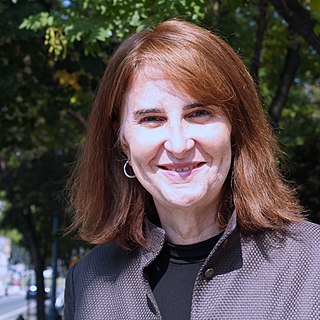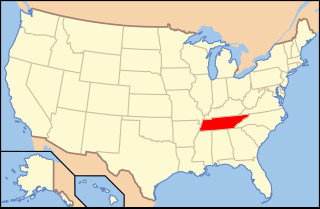The Employment Non-Discrimination Act (ENDA) is legislation proposed in the United States Congress that would prohibit discrimination in hiring and employment on the basis of sexual orientation or, depending on the version of the bill, gender identity, by employers with at least 15 employees.

The National Center for Transgender Equality (NCTE) is a nonprofit social equality organization founded in 2003 by transgender activist Mara Keisling in Washington, D.C. The organization works primarily in the areas of policy advocacy and media activism with the aim of advancing the equality of transgender people in the United States. Among other transgender-related issue areas, NCTE focuses on discrimination in employment, access to public accommodations, fair housing, identity documents, hate crimes and violence, criminal justice reform, federal research surveys and the Census, and health care access.

Violence against transgender people includes emotional, physical, sexual, or verbal violence. The term has also been applied to hate speech directed at transgender people and at depictions of transgender people in the media that reinforce negative stereotypes about them. Trans and non-binary gender adolescents can experience bashing in the form of bullying and harassment. When compared to their cisgender peers, trans and non-binary gender youth are at increased risk for victimisation, which has been shown to increase their risk of substance abuse.

In the United States, public opinion and jurisprudence on lesbian, gay, bisexual, and transgender (LGBT) rights have developed significantly since the late 1980s. In 1961, beginning with Illinois, states began to decriminalize same-sex sexual activity, and in 2003, through Lawrence v. Texas, all remaining laws against same-sex sexual activity were invalidated. In 2004, beginning with Massachusetts, states began to offer same-sex marriage, and in 2015, through Obergefell v. Hodges, all states were required to offer it. In many states and municipalities, LGBT Americans are explicitly protected from discrimination in employment, housing, and access to public accommodations. Many LGBT rights in the United States have been established by the United States Supreme Court, which invalidated state laws banning protected class recognition based upon homosexuality, struck down sodomy laws nationwide, struck down Section 3 of the Defense of Marriage Act, made same-sex marriage legal nationwide, and prohibited employment discrimination against gay and transgender employees. LGBT-related anti-discrimination laws regarding housing and private and public services varies by state. Twenty-three states plus Washington, D.C., Guam, and Puerto Rico outlaw discrimination based on sexual orientation, and twenty-two states plus Washington, D.C., outlaw discrimination based on gender identity or expression. Family law also varies by state. Adoption of children by same-sex married couples is legal nationwide since Obergefell v. Hodges.

Lesbian, gay, bisexual, and transgender (LGBT) people in Thailand have several but not all of the same rights as non-LGBT people. Both male and female same-sex sexual activity are legal in Thailand, and same-sex marriage rights within the nation are pending legalisation. About eight percent of the Thai population, five million people, are thought to be in the LGBT demographic.

Mara Keisling is an American transgender rights activist and founding executive director of the National Center for Transgender Equality. She is a trans woman who began transitioning in her early 40s. In 2003, Keisling founded the National Center for Transgender Equality to advocate for the rights of transgender people in the United States.

The transgender rights movement is a movement to promote the legal status of transgender people and to eliminate discrimination and violence against transgender people regarding housing, employment, public accommodations, education, and health care. A major goal of transgender activism is to allow changes to identification documents to conform with a person's current gender identity without the need for gender-affirming surgery or any medical requirements, which is known as gender self-identification. It is part of the broader LGBT rights movements.
In the United States, the rights of transgender people vary considerably by jurisdiction. In recent decades, there has been an expansion of federal, state, and local laws and rulings to protect transgender Americans; however, many rights remain unprotected, and some rights are being eroded. Since 2020, there has been a national movement by conservative/right-wing politicians and organizations to target transgender rights. There has been a steady increase in the number of anti-transgender bills introduced each year, especially in Republican-led states.

Lesbian, gay, bisexual, and transgender (LGBT) persons in the U.S. state of Ohio have most of the rights non-LGBT residents have. Same-sex sexual activity is legal in Ohio, and same-sex marriage has been legally recognized since June 2015 as a result of Obergefell v. Hodges. Ohio statutes do not address discrimination on account of sexual orientation and gender identity; however, the U.S. Supreme Court's ruling in Bostock v. Clayton County established that employment discrimination against LGBT people is illegal in 2020. In addition, a number of Ohio cities have passed anti-discrimination ordinances providing protections in housing and public accommodations. Conversion therapy is also banned in a number of cities. In December 2020, a federal judge invalidated a law banning sex changes on an individual's birth certificate within Ohio.

Lesbian, gay, bisexual, and transgender (LGBT) people in the U.S. state of Florida have federal protections, but many face legal difficulties on the state level that are not experienced by non-LGBT residents. Same-sex sexual activity became legal in the state after the U.S. Supreme Court's decision in Lawrence v. Texas on June 26, 2003, although the state legislature has not repealed its sodomy law. Same-sex marriage has been legal in the state since January 6, 2015. Discrimination on account of sexual orientation and gender identity in employment, housing and public accommodations is outlawed following the U.S. Supreme Court's ruling in Bostock v. Clayton County. In addition, several cities and counties, comprising about 55 percent of Florida's population, have enacted anti-discrimination ordinances. These include Jacksonville, Miami, Tampa, Orlando, St. Petersburg, Tallahassee and West Palm Beach, among others. Conversion therapy is also banned in a number of cities in the state, mainly in Palm Beach County and the Miami metropolitan area. In September 2023, Lake Worth Beach, Florida became an official "LGBT sanctuary city" to protect and defend LGBT rights.

The U.S. state of New York has generally been seen as socially liberal in regard to lesbian, gay, bisexual, and transgender (LGBT) rights. LGBT travel guide Queer in the World states, "The fabulosity of Gay New York is unrivaled on Earth, and queer culture seeps into every corner of its five boroughs". The advocacy movement for LGBT rights in the state has been dated as far back as 1969 during the Stonewall riots in New York City. Same-sex sexual activity between consenting adults has been legal since the New York v. Onofre case in 1980. Same-sex marriage has been legal statewide since 2011, with some cities recognizing domestic partnerships between same-sex couples since 1998. Discrimination protections in credit, housing, employment, education, and public accommodation have explicitly included sexual orientation since 2003 and gender identity or expression since 2019. Transgender people in the state legally do not have to undergo sex reassignment surgery to change their sex or gender on official documents since 2014. In addition, both conversion therapy on minors and the gay and trans panic defense have been banned since 2019. Since 2021, commercial surrogacy has been legally available within New York State.

Lesbian, gay, bisexual, and transgender (LGBT) persons in the U.S. commonwealth of Kentucky still face some legal challenges not experienced by other people. Same-sex sexual activity is legal in Kentucky, although the state legislature has not repealed its sodomy statute for same-sex couples. Same sex-marriage is legal in the Kentucky under the U.S. Supreme Court ruling in Obergefell v. Hodges. The decision, which struck down Kentucky's statutory and constitutional bans on same-sex marriages, and all other same sex marriage bans elsewhere in the country, was handed down on June 26, 2015.

LGBT employment discrimination in the United States is illegal under Title VII of the Civil Rights Act of 1964; employment discrimination on the basis of sexual orientation or gender identity is encompassed by the law's prohibition of employment discrimination on the basis of sex. Prior to the landmark cases Bostock v. Clayton County and R.G. & G.R. Harris Funeral Homes Inc. v. Equal Employment Opportunity Commission (2020), employment protections for LGBT people were patchwork; several states and localities explicitly prohibit harassment and bias in employment decisions on the basis of sexual orientation and/or gender identity, although some only cover public employees. Prior to the Bostock decision, the Equal Employment Opportunity Commission (EEOC) interpreted Title VII to cover LGBT employees; the EEOC determined that transgender employees were protected under Title VII in 2012, and extended the protection to encompass sexual orientation in 2015.
A bathroom bill is the common name for legislation or a statute that denies access to public toilets by gender or transgender identity. Bathroom bills affect access to sex-segregated public facilities for an individual based on a determination of their sex as defined in some specific way, such as their sex as assigned at birth, their sex as listed on their birth certificate, or the sex that corresponds to their gender identity. A bathroom bill can either be inclusive or exclusive of transgender individuals, depending on the aforementioned definition of their sex.

G.G. v. Gloucester County School Board was a court case dealing with transgender rights in the United States. The case involved a transgender boy attending a Virginia high school, who sued the local school board after he was forced to use girls' restrooms based on his assigned gender under the school board's policy. While the Fourth Circuit ruled in favor of the student based on Obama administration policy related to Title IX protections, the election of Donald Trump changed the underlying policy. A pending hearing before the Supreme Court of the United States was vacated and the case was sent back to the Fourth Circuit.
This article addresses the legal and regulatory history of transgender and transsexual people in the United States including case law and governmental regulatory action affecting their legal status and privileges, at the federal, state, municipal, and local level, and including military justice as well.

The Tennessee Transgender Political Coalition is a transgender and LGBT civil rights organization in the state of Tennessee in the United States of America.
R.G. & G.R. Harris Funeral Homes Inc. v. Equal Employment Opportunity Commission, 590 U.S. ___ (2020), is a landmark United States Supreme Court case which ruled that Title VII of the Civil Rights Act of 1964 protects transgender people from employment discrimination.
Marsha C. Botzer is a Seattle based activist and non-profit administrator who has been working in the Transgender rights movement since the mid-1970s. Botzer is a trans woman herself. She founded Ingersoll Gender Center in Seattle in 1977, making it the oldest non-profit organization working in the space of transgender rights. Botzer was also an early member of Hands Off Washington and a founding member of Equality Washington, as well as Out in Front Leadership Project.













